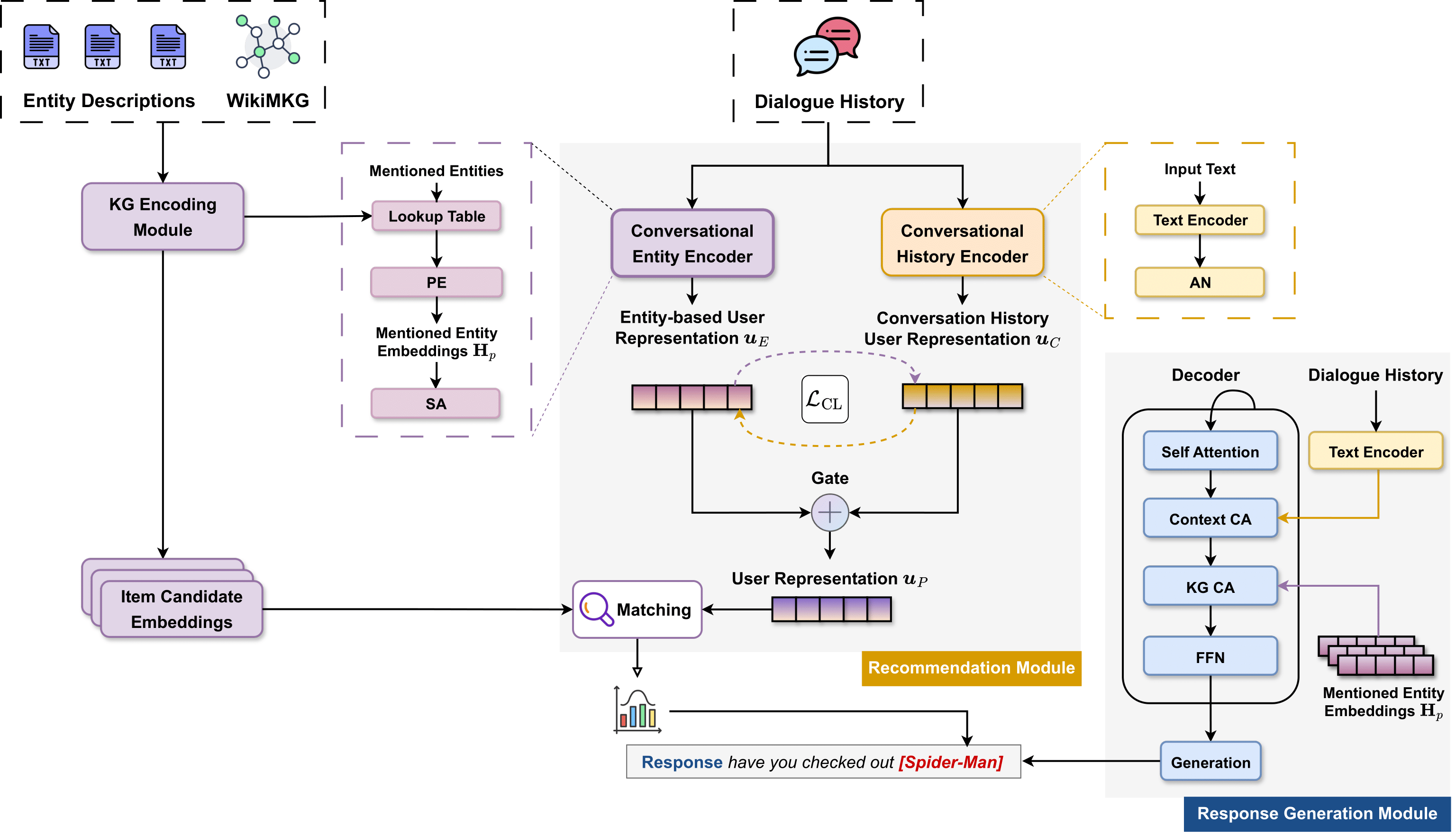Knowledge Graphs and Pre-trained Language Models enhanced Representation Learning for Conversational Recommender Systems
Conversational recommender systems (CRS) utilize natural language interactions and dialogue history to infer user preferences and provide accurate recommendations. Due to the limited conversation context and background knowledge, existing CRSs rely on external sources such as knowledge graphs to enrich the context and model entities based on their inter-relations. However, these methods ignore the rich intrinsic information within entities. To address this, we introduce the Knowledge-Enhanced Entity Representation Learning (KERL) framework, which leverages both the knowledge graph and a pre-trained language model to improve the semantic understanding of entities for CRS. In our KERL framework, entity textual descriptions are encoded via a pre-trained language model, while a knowledge graph helps reinforce the representation of these entities. We also employ positional encoding to effectively capture the temporal information of entities in a conversation. The enhanced entity representation is then used to develop a recommender component that fuses both entity and contextual representations for more informed recommendations, as well as a dialogue component that generates informative entity-related information in the response text. A high-quality knowledge graph with aligned entity descriptions is constructed to facilitate our study, namely the Wiki Movie Knowledge Graph (WikiMKG). The experimental results show that KERL achieves state-of-the-art results in both recommendation and response generation tasks.
PDF Abstract





 ReDial
ReDial